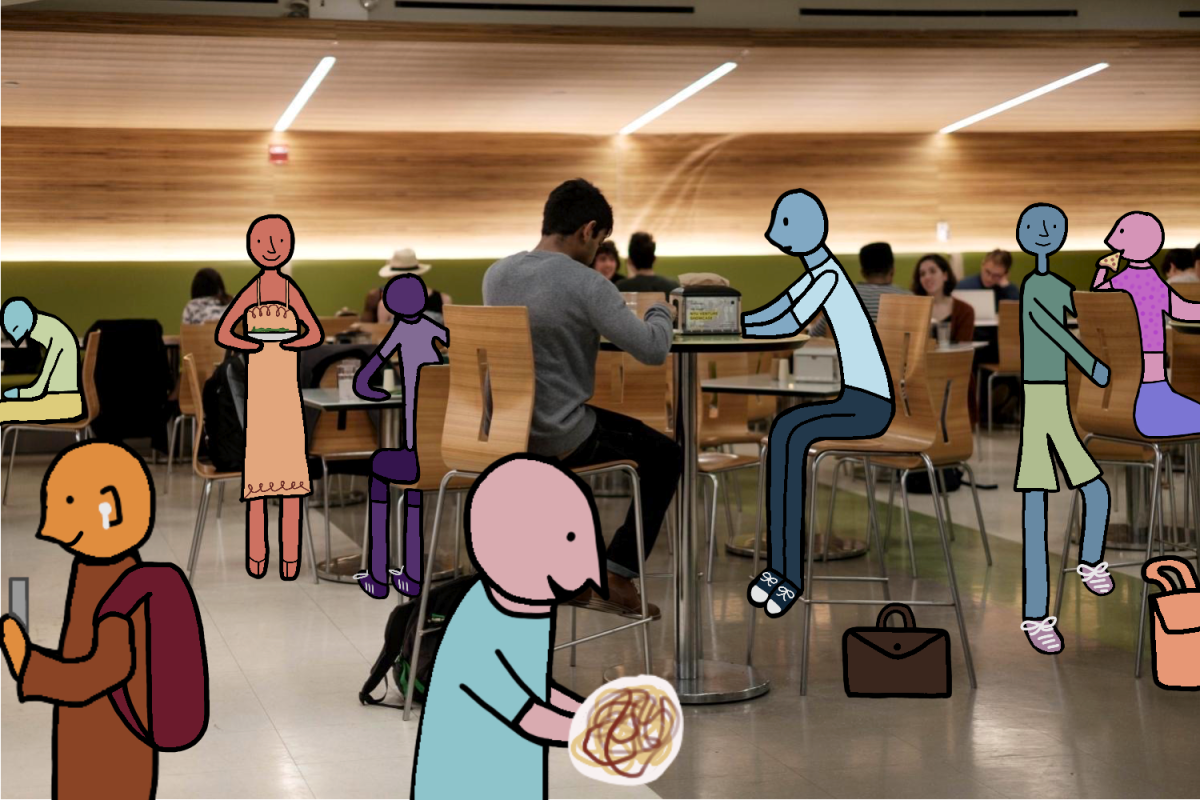As I enter my junior year, the dull and isolating nature of NYU’s open campus has become a familiar reality. For many, walking past another NYU student on campus is just like an uptown train passing its downtown counterpart without respite; for some reason being a part of the “NYU community” doesn’t involve much community at all.
It’s easy to point fingers at NYU for the distance between its students, but the university appears to be making a concerted effort to invest in community spaces. NYU’s ongoing efforts to improve social hubs like Bobst Library and the Paulson Center as the university’s population grows should be enough to compensate for its lack of a traditional campus. Instead of a sense of community, however, isolation continues to permeate these shared spaces.
The university is clearly trying, so maybe the problem is the students.
Not everyone we interact with is an NYU student, a difference to most college campuses that can make it harder to find community. Unlike many college students in the country, we have other options besides NYU spaces to study, eat and even live. With so many other places to be, looking for people to connect with at NYU can be pushed down the priority list pretty quickly, but making the choice to, for example, study at a student lounge instead of a coffee shop a few times a week might help you make a new friend or two.
Unless you are a social butterfly, smoothly starting up conversations can be a challenge. The tradition of leaving an empty seat between classmates in lectures, dining halls or lounge areas, initially born out of convenience or a subconscious desire for personal space, has become more than just a physical gap — it’s symbolic of the boundaries students maintain even in spaces where community and interaction are encouraged.
This lingering effect may come from the post-pandemic landscape at NYU, where the emphasis on physical distance could inadvertently have led to a lingering emotional distance among peers, creating the familiar dull and eye contact-averse vibes on campus. College students have been especially vulnerable and have experienced disruptions to their social skills as a result of the COVID-19 pandemic.
A good way to combat the isolation from the physical distance between students — understandable amid the current COVID-19 surge — is to create small interactions when you have the chance. Meaningful interactions can be as simple as complimenting someone, asking about the stickers on their laptop or expressing interest in their assignment. Whether it’s your Expressive Cultures lecture or a mindfulness yoga class, there’s always an opportunity to make a new connection.
Despite the university’s efforts to make communal spaces more welcoming, like installing cozy couches in Bobst, or allowing students to queue music in certain dining halls, we still find ourselves cocooned in our own digital worlds, traditionally shared experiences like studying and dining into solitary endeavors. Students, often tired and preoccupied with their own pursuits, contribute to the silent landscape that dominates communal spaces by remaining glued to their screens, and seemingly unable to engage in conversation — let alone make new relationships.
Maybe you think you don’t need community to get through college, and that it’s not worth the stress or effort to push yourself to connect with others at NYU. But you’d be wrong, investing in finding community at NYU is also an investment in your success. The lack of community on campus can erode students’ sense of belonging and even contribute to feelings of imposter syndrome. A study from the University of Houston-Downtown found that loneliness and isolation also have repercussions on academic performance and overall well-being.
To truly transform the atmosphere of our school, we must reconsider how we engage with one another. Are we approachable? Do we actively initiate friendly interactions? Do we leave space for others to join in? How long can we continue to overlook each other’s presence? As we strive to reclaim a sense of community at NYU, it takes conscious efforts from students to initiate the connections we crave.
WSN’s Opinion section strives to publish ideas worth discussing. The views presented in the Opinion section are solely the views of the writer.
Contact Abi Rivera at [email protected]
























































































































































